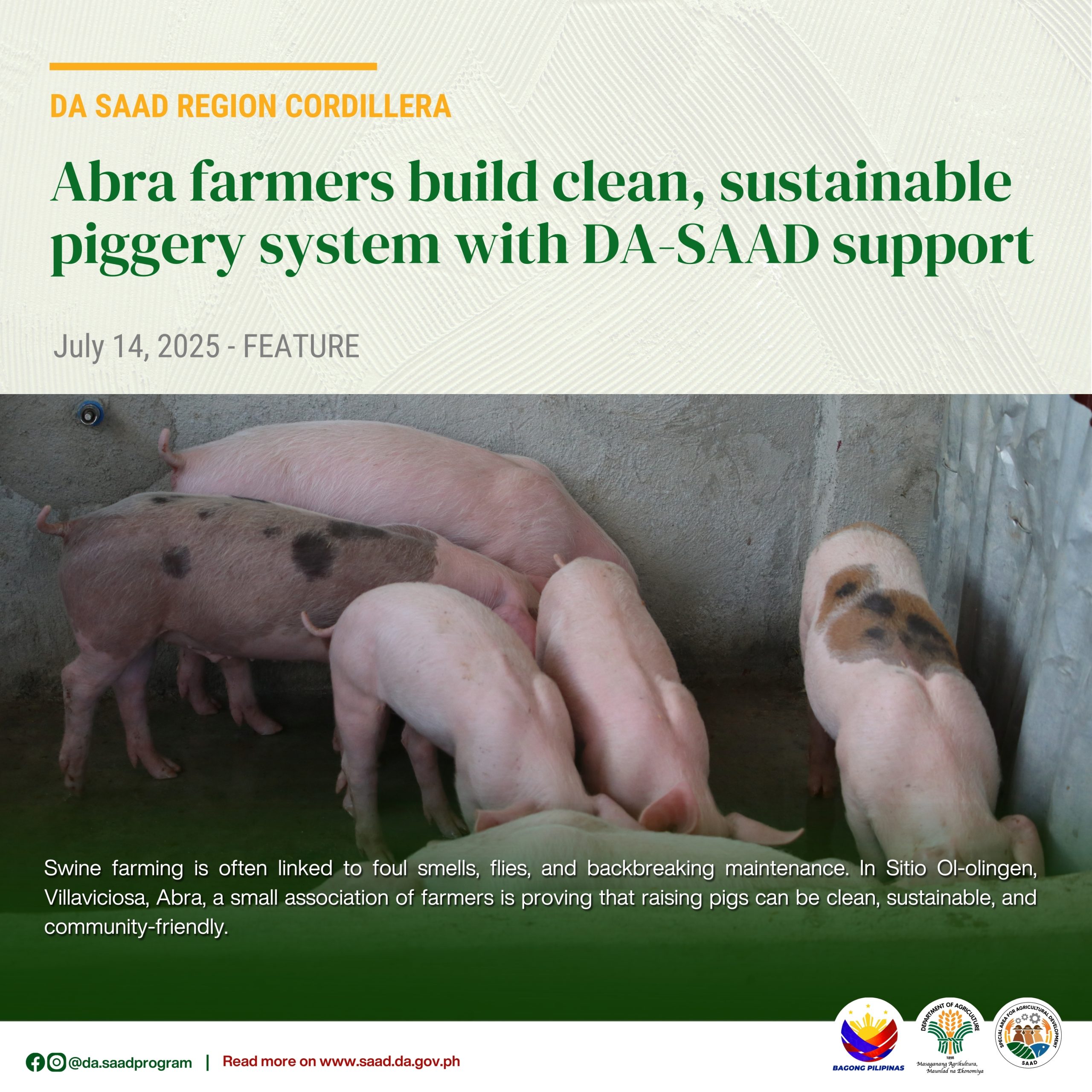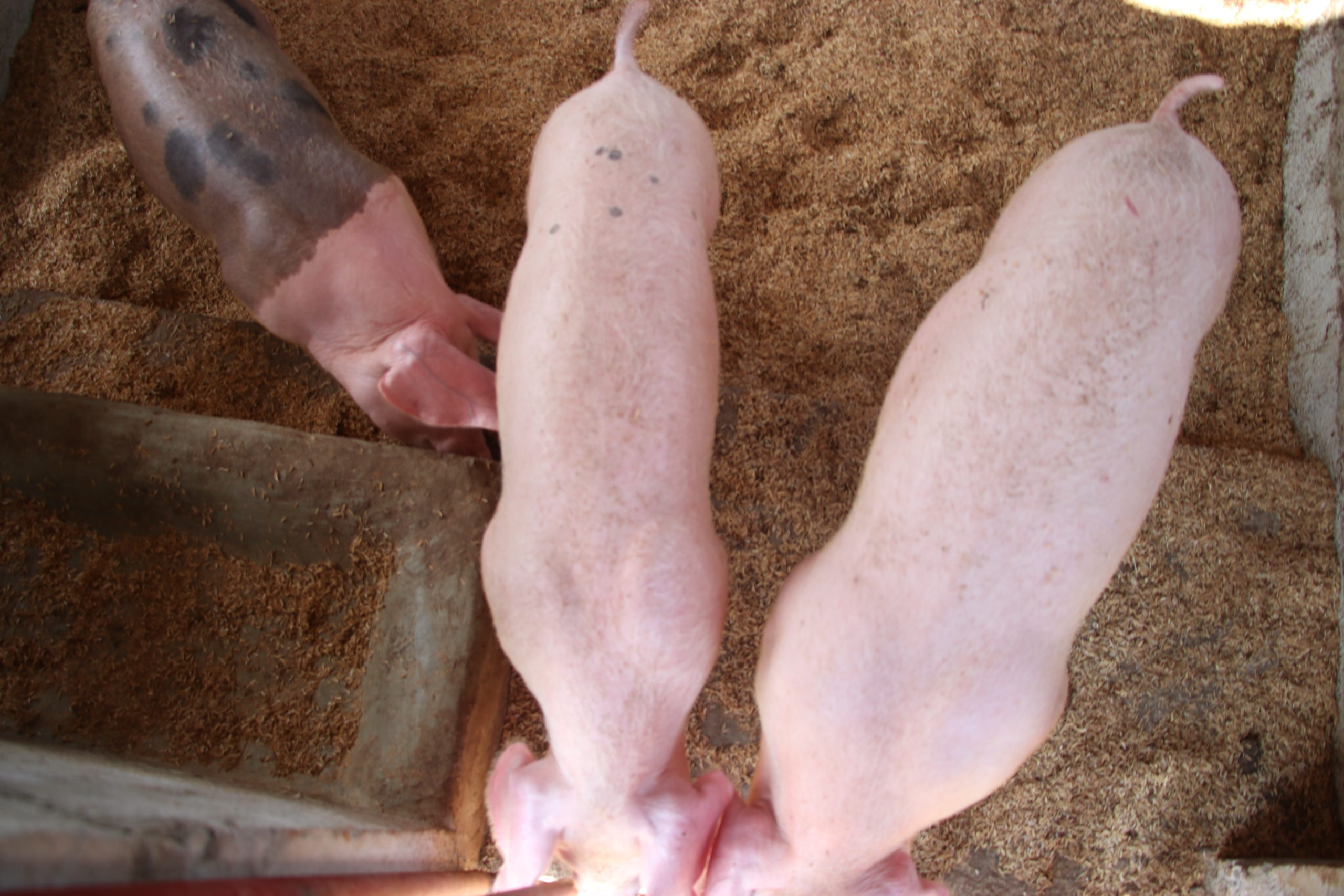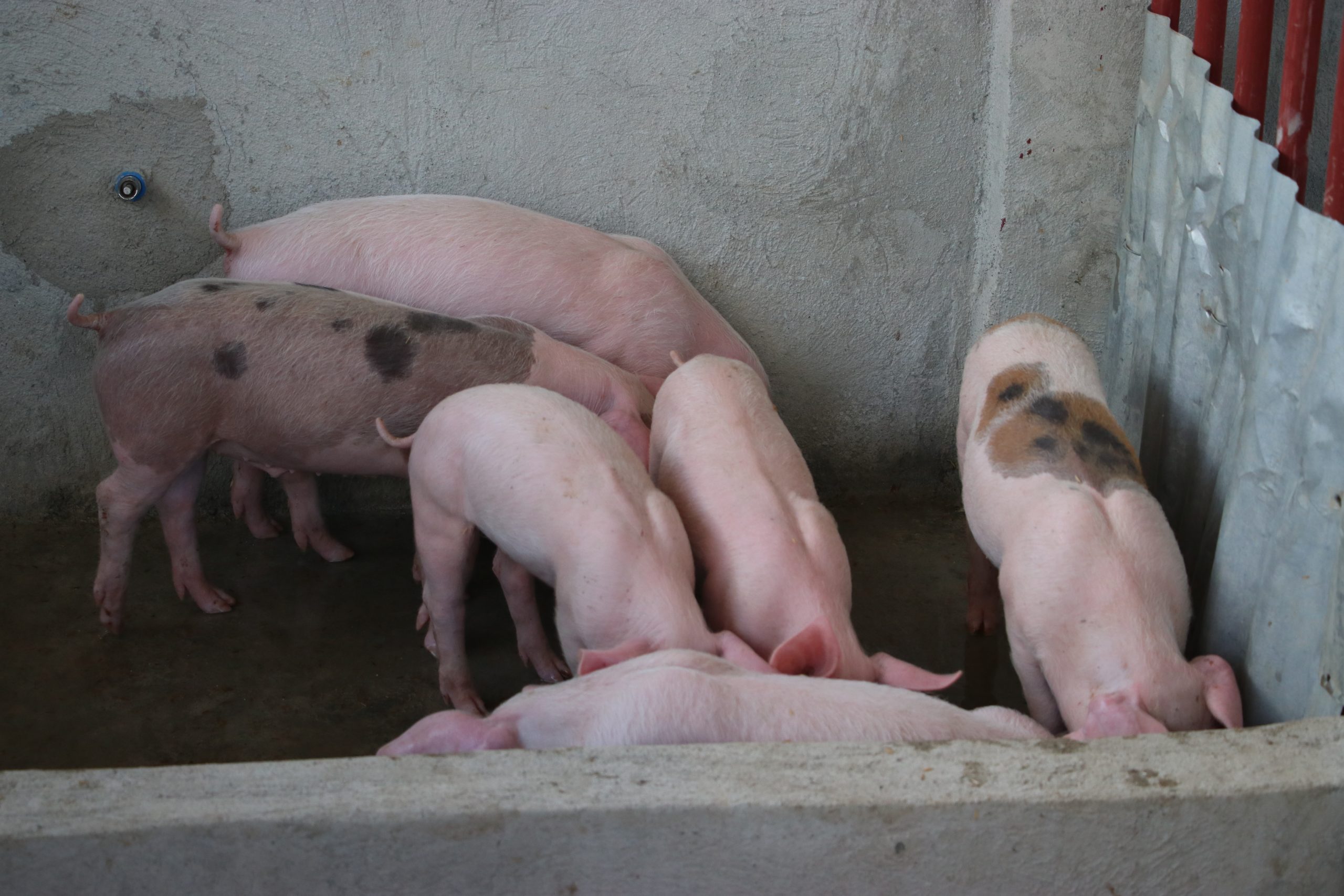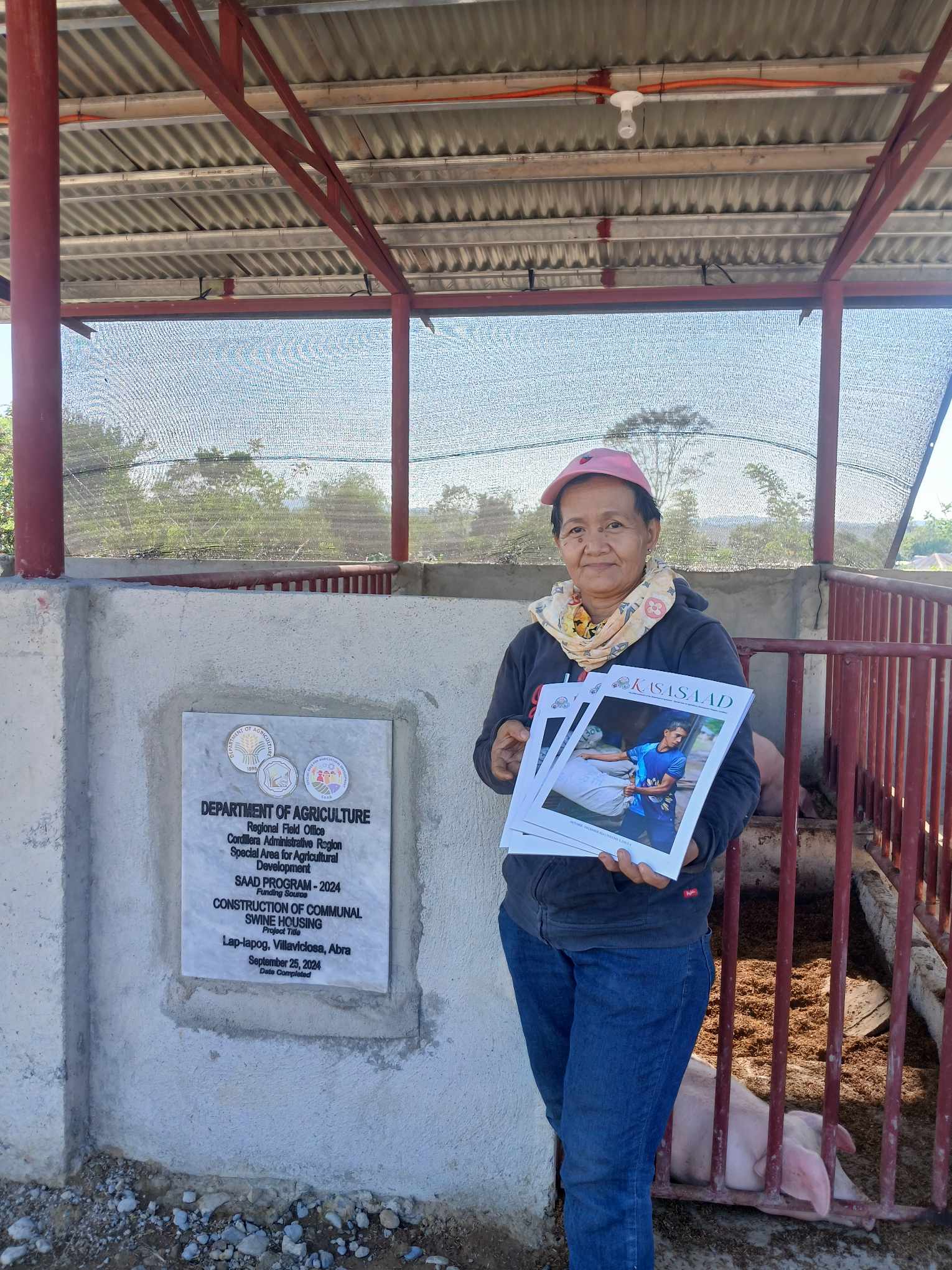Swine farming is often linked to foul smells, flies, and backbreaking maintenance. In Sitio Ol-olingen, Villaviciosa, Abra, a small association of farmers is proving that raising pigs can be clean, sustainable, and community-friendly.
With support from the Department of Agriculture – Special Area for Agricultural Development (DA-SAAD) Phase 2 Program in the Cordillera Administrative Region (CAR), the Sitio Ol-olingen Lap-lapog Agriculture Fisheries Association has built a clean, community-managed piggery that sets a new benchmark for responsible and sustainable agriculture.
The group received SAAD’s communal swine production project back in 2023, which included the construction of a swine housing.
But it was the initiative of their president, Florencia Baggas, that took the project a step further. After watching a video on baboyang walang amoy or odorless piggery, Florencia became determined to replicate the method, one that would uphold not just productivity, but dignity, health, and community wellbeing.
With help from SAAD CAR and the unity of the association, they integrated a clean farming system using ipa (rice hulls) as bedding inside the pigpens. The locally-available material helps absorb moisture, control odor, and reduce the need for frequent washing, resulting in a dry, fly-free environment that’s easier and safer to maintain.
Florencia shared how the changes significantly improved their daily operations.
“Nalaklaka nga dalusan, haan nga naangot, haan nga nagastar ti danum, awan ti ngilaw ken lamok, mamaintain ti kinamaga na jay housing ken nalaklaka nga i-manage ta jay kasla pool lang ti madalusan, haan madlaw nga babuyan isuna,” she said.
(It’s easy to clean, it doesn’t smell, it doesn’t use much water, there are no flies and mosquitoes, the housing stays dry, and it’s easy to manage because it’s just like cleaning a pool – you would not even think it’s a piggery.)
Their location was also carefully selected, built away from homes to avoid disturbance, but close enough to a water source for easy cleaning.
SAAD community development officers helped install hoses, while the group added a sunshade for the pigs’ comfort. Their attention to detail reflected a strong commitment to animal care and environmental responsibility.
During the turnover ceremony, Abra Agricultural Program Coordinating Officer Rosemarie Tesoro remarked: “Amo yu kadi nga dakayo ti maysa nga kalilinisan ti pagbabuyan na nga dapat kuma ket tuladen met ti dadduma nga associations.”
(Do you know that you are one of those [groups] with the cleanest piggeries, and it is something that other associations should follow.)
Discipline and cooperation anchored their success. The group follows a clear operations manual, assigning monthly schedules to members who volunteer to manage the piggery. In return, they receive a modest honorarium, which reinforces a sense of accountability.
Florencia expressed the group’s deep gratitude: “Manyaman kami iti adu-adu ti project nga intedyu. Daytoy ket dakkel unay a pamuspusanmi a farmers ti SAAD. Sapay kuma ta agbalin a naragsak ken nadur-as daytoy nga proyekto.”
(We are grateful for the many projects given to us. This one is a big foundation for us SAAD farmers. We hope that this project will continue to grow and succeed.)
“What they’ve built is not just a facility. It’s a reflection of what farmers can achieve when vision is paired with support and trust,” affirmed Community Development Officer Marenil Matbagan, who has worked closely with the group.
What began as a simple dream for a cleaner, more manageable livelihood has become a working model of clean, sustainable agriculture in the highlands of Abra. The Sitio Ol-olingen Lap-lapog Agriculture Fisheries Association is no longer just raising pigs, they are raising standards. ###



